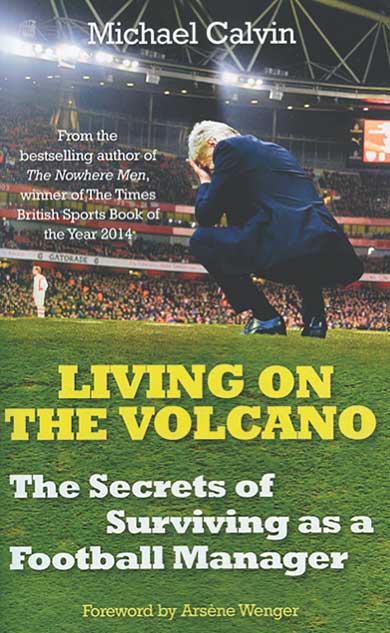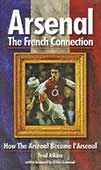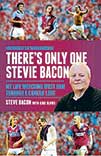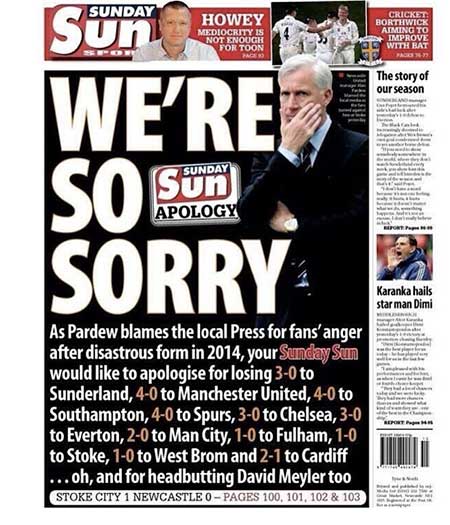{youtube}jEv6Y8eG8d8{/youtube}
Search: 'Alan Pardew'
Stories
 The secrets of surviving as a football manager
The secrets of surviving as a football manager
by Michael Calvin
Century Books, £16.99
Reviewed by Huw Richards
From WSC 344 October 2015
Football uses managers as defining figures much as old-style history employed monarchs, to the extent of describing often pathetically short periods in office as “reigns”. Michael Calvin’s labelling of this phenomenon “Gaffer as Godhead” typifies an eye for the neat, aphoristic turn of phrase. He sees Roberto Martínez as “an undercover pragmatist” and identifies Ian Holloway as a “man of contradiction and impulse”. Such one-liners stud a book built on long interviews with its subjects, among which Holloway’s stream of consciousness stands out along with a sympathetic account of Alan Irvine’s travails and an intriguing portrait of Paul Tisdale.
Anyone wanting the long view of football management still needs to read Neil Carter’s historical study (The Football Manager, published in 2006). But as a picture of how it is now, this will be hard to beat. Those seeking the “how to” guide implied in the subtitle will find plenty of ideas, but must look hard since they are located within the wealth of insight and anecdote throughout the interviews rather than any grand overarching exposition. “Survival” implies retaining health, sanity and self-respect, rather than avoiding the all-but inevitable sack, although on either count your chances are better at Swansea, Exeter or Everton than QPR or Leeds.
This is a job which demands unshakeable self-confidence, but at the same time is designed to erode and ultimately destroy it. The toll it can take is shown at its most extreme by Martin Ling’s description of depression and electro-convulsive therapy, but there is plenty of testimony elsewhere, such as Brian McDermott’s belief that: “There are a lot of depressed people in football, but they probably do not even know it, because they are conditioned by the game.”
Calvin’s questioning evokes a sense of men who are confident and reflective, with credentials and hinterlands beyond their coaching badges. Some, such as Brendan Rodgers, are adepts in neuro-linguistic programming (no, me neither before I read this book), while Chris Hughton did a corporate management course and many have benefited from the League Managers Association’s training.
Aidy Boothroyd may still periodically punch a wall at half time, but sensitivity has replaced rage as a default setting. It is not just innate decency that explains Eddie Howe’s practice of “being a shoulder” for players, but that it “can only help you”.
They are also supportive of each other. Rodgers and Alan Pardew in particular emerge as willing to assist others, while Pardew also generates the best piece of trivia with his pride, from his past as a glazier, at having installed windows on the Natwest Tower and Sea Containers House.
Calvin is no soft touch, but the overwhelming impression he conveys is a sympathetic one – of largely decent, if driven men working in a world where, as Mick McCarthy says, “common sense is not very common”. The problem is not the managers, but the people who appoint them and the hysterical atmosphere in which they must try to function.
 How the Arsenal became l’Arsenal
How the Arsenal became l’Arsenal
by Fred Atkins
GCR Books, £18.99
Reviewed by Damian Hall
From WSC 313 March 2013
There can’t be many football clubs that have a stronger connection to a foreign country than Arsenal do with France. Since Arsène Wenger took over, 23 French footballers have played for the Gunners – often in teams without an Englishman. Between September 10, 1996 and November 1, 2011 the club played only two competitive fixtures without a Frenchman in the team, both of which were experimental line-ups for relatively meaningless fixtures (and one included an unused French sub).
There’s a story to be told here and Fred Atkins is in a good position to tell it, having lived in France and studied at university in Strasbourg, the city where Wenger grew up and gained his oft-mentioned economics degree.
The book is logically divided into a chapter for each player and lengths wisely vary – you wouldn’t expect Patrick Vieira to get the same amount of coverage as Gilles Sunu. There’s a foreword by Gilles Grimandi, in which he self-deprecatingly confesses his one Arsenal goal was a mishit cross, but unfortunately there are no fresh interviews. Though tracking down all 23 men would have been a huge job, it means there’s little new here about the players’ times at Arsenal, bar occasional quotes translated from interviews with the French press.
The book’s interest comes largely from the players’ pre-Arsenal careers, such as the comical litany of bureaucratic errors by French football officials, one of which meant William Gallas couldn’t play first-team football for half a season at Marseille. No wonder his tantrums started long before his move to Arsenal. Many chapters are reminders that players’ foibles – Abou Diaby’s injuries, Mathieu Flamini’s perceived disloyalty – were there before they moved across the Channel. Some may enjoy the news that, while playing for Lorient against Bordeaux, Laurent Koscielny was once sent off for fouling future team-mate Marouane Chamakh and the obvious quips it encourages.
The Emmanuel Petit chapter stands out. His life has not been that of the average footballer: he’s struggled to deal with the death of his brother, depression, the USA 94 qualification failure (he played left-back in the defeat to Bulgaria) and periods of debauchery. Atkins also claims Petit drank and smoked throughout France 98. Perhaps more startlingly, after joining Barcelona, manager Lorenzo Serra Ferrer asked him what position he played. Petit almost joined Manchester United instead of Chelsea – and wishes he had.
However, Atkins’s tone is unashamedly parochial. There are puerile digs at Alex Ferguson, a tedious and paranoid rant about refereeing decisions and, apparently, Jacques Santini’s judgment should be questioned simply because he managed Tottenham, while crass speculation on Thierry Henry’s marriage breakdown belongs to the worst of the tabloid press.
Some bigger questions, too, go begging. Has Wenger systematically favoured French players over English players? If so, why? Should Le Prof still be recruiting heavily from Ligue 1 when the French national team are no longer pre-eminent – and when Alan Pardew seems better at it. And how has Wenger’s English seemingly got worse, “a little bit”, over the years?
 My life watching
West Ham through
a camera lens
My life watching
West Ham through
a camera lens
by Steve Bacon & Kirk Blows
Biteback, £15.99
Reviewed by Neil Fairchild
From WSC 310 December 2012
When Steve Bacon was appointed West Ham club photographer in 1980, John Lyall was only the fifth West Ham manager of the 20th century. In the 23 years since Lyall’s departure, there have been nine different permanent managers and almost as many promotions and relegations. For Hammers fans the familiar rotund figure of Bacon waddling across the pitch on matchdays has become a reassuring constant in an uncertain world.
Until Alan Pardew arrived in 2003 Bacon would travel to away matches on the team coach. He would even be present in the dressing room during team talks. There’s Only One Stevie Bacon is a behind-the-scenes glimpse at the dysfunctional world of West Ham over three decades, with a chapter dedicated to the tenure of each manager from Lyall to Gianfranco Zola.
Although Bacon’s subjectivity gives the book a partial and at times spiteful feel – Paul Kitson is a “weasel”, Brian Kidd a “horrible little shit” – his refusal to pander to fans’ preconceptions makes for a refreshing viewpoint. Ron Greenwood is an “awkward bugger” and Pardew, who was the last manager to have his name sung by West Ham fans, is repeatedly dismissed as arrogant and mocked for his use of psychology and motivational techniques. Lou Macari, loved by neither fans nor players, is portrayed in a surprisingly compassionate light. Others are depicted in exactly the way you would expect: old-fashioned Billy Bonds, for example, struggles with the modern world. Following rumours about the close relationship between Ian Bishop and Trevor Morley, Bonds calls both players into his office and asks: “Well, are you or ain’t you?” It turns out they ain’t.
Kirk Blows, author of various books on West Ham, has been enlisted to bring a sense of cohesion to these anecdotes. Blows appears to have viewed his role as that of articulating Bacon’s thoughts rather than challenging them. At times some editing would have been kind. Bacon’s bafflement at the poor quality of televisions in a department store in 1980s communist Romania (“the arsehole of the universe” as he charmingly calls it) would have been a useful omission.
Bacon is the first to admit that he is no football expert and this book sheds little light on why the FA Cup that was won just before his arrival was the club’s last piece of major silverware. Nevertheless there are plenty of interesting and funny tales: the team coach stopping on the way to a match at Stoke to allow the kit manager to put a bet on for Macari; a naked John Moncur jumping out of a locker during one of Harry Redknapp’s team talks; a frightened Paolo di Canio telling a stewardess “I don’t want to die” before getting off a plane that is about to take off.
Far too often the tone of the book is brought down by stories that would be better left in the pub. His fondness of Mark Ward’s wife’s “big boobs” and a players’ masturbation competition on the team coach (yes, really) are two examples. Then again, given the niche target market for this book, perhaps Bacon simply has a good understanding of his audience.
